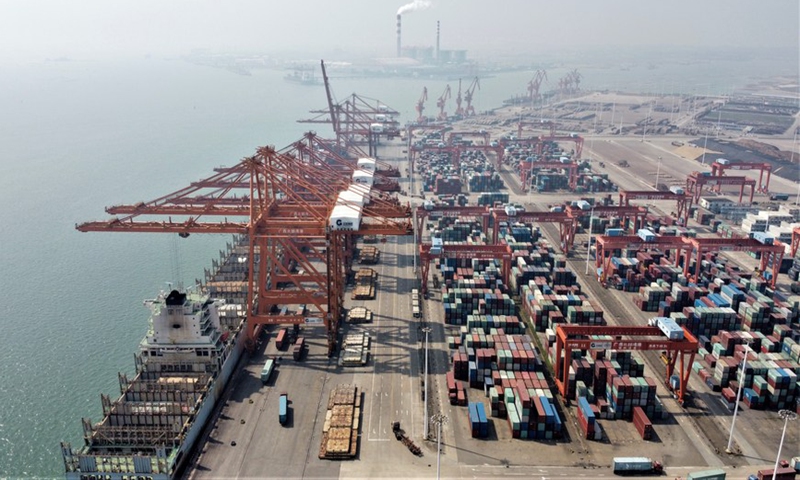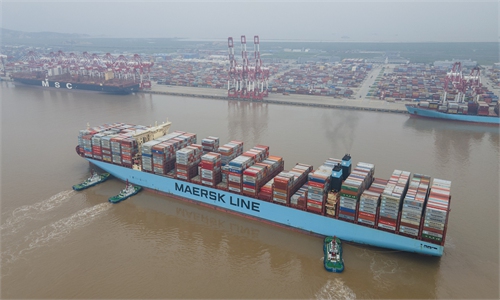SOURCE / INDUSTRIES
With a stronger currency, Chinese exporters’ profits feel pinch

Aerial photo taken on April 15, 2020 shows Qinzhou Port in south China's Guangxi Zhuang Autonomous Region. (Xinhua/Lei Jiaxing)
Chinese exporters are starting to feel a pinch on their profitability as the yuan continues to appreciate. The currency's central parity rate soared to a nearly 29-month high on Wednesday against the US dollar.
Following the release of robust economic data for October, the currency's midpoint reference rate against the dollar rose 169 basis points to 6.5593 on Wednesday, according to the People's Bank of China (PBC), China's central bank. It was the highest level since June 27, 2018.
Chinese manufacturers have begun to feel the pressure, as most of their export contracts are settled in US dollars, Jin Xiaobo, CEO of Zhejiang Kaierhai Textile Garments Co, told the Global Times.
"Many of our contracts were signed when the rate was near 7," said Jin, but profits are now taking a hit from a stronger yuan.
So far this year, the yuan's official reference rate has surged by 5.7 percent against the US dollar. The currency stood at 6.9614 against the greenback at the beginning of the year.
Jin said, for some trade contracts, his company secured a fixed rate through a forward contract with a bank, providing insulation from a volatile rate. However, smaller business owners are less likely to be able to do this, Jin said.
He Chong, the owner of an electric scooter company based in Foshan, South China's Guangdong Province, told the Global Times that last month alone, the appreciation of the yuan cost him about 800,000 yuan ($12,226). Like Zhejiang Kaierhai, He's scooter company also receives payment in the dollar, but last month's revenue of about $200,000 shrank 6 percent because of the dollar's depreciation.
The yuan has been appreciating against the US dollar since mid-year for a spate of reasons, but experts said the two countries' economic recovery gaps from their different handling of the COVID-19 crisis are decisive.
Zhou Yu, director of the Research Center of International Finance at the Shanghai Academy of Social Sciences, said that China's upbeat economic performance, combined with the PBC's recent move to allow the yuan to fluctuate more freely — including the phasing out of the counter-cyclical factor's function — means the yuan will probably appreciate even more.
However, if the yuan surges too fast, offsetting measures will be used to curb the trend, Zhou said. Last month, the PBC cut the forex risk reserve ratio for forward contracts, making it cheaper to short the yuan.
"So far it hasn't affected the prices of our products," He said. "But if the yuan continues to rise sharply and makes our profit margins too thin, we will have to see if we need to adjust the pricing."

